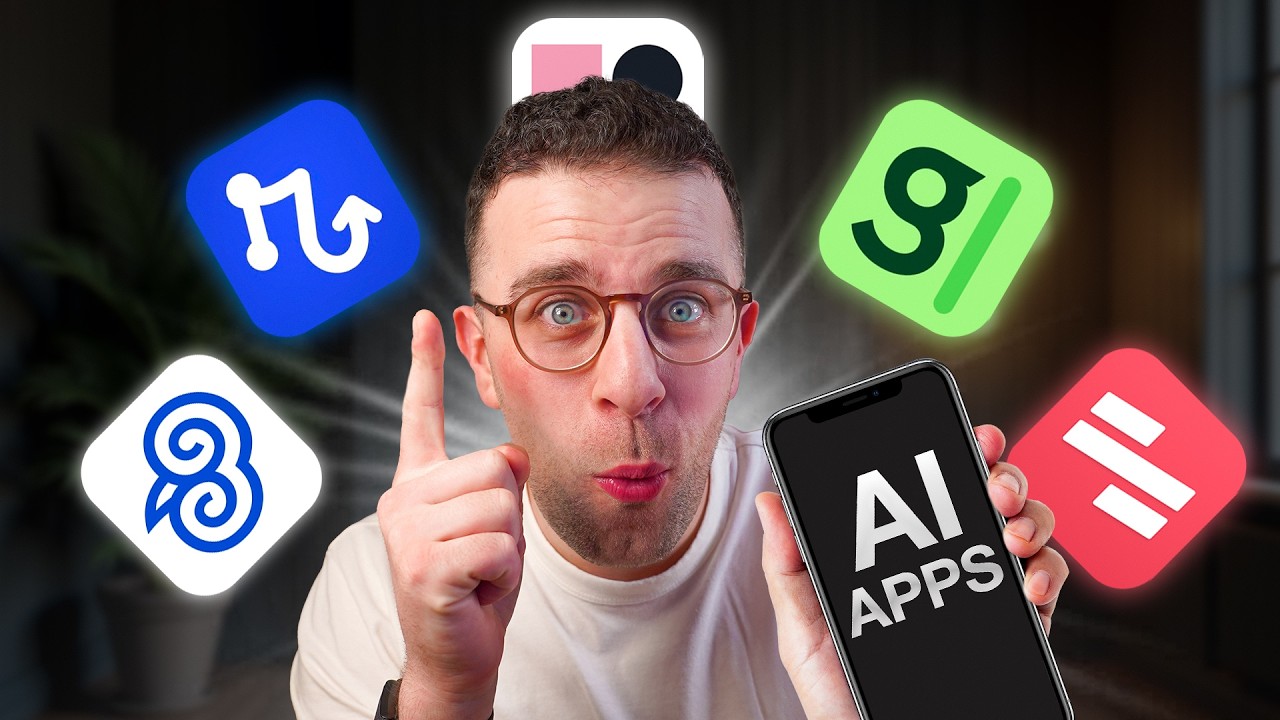AI That Works While You Rest – 5 Game-Changing Productivity Tools of 2025
TL;DR
- Time Saved: 5-minute video condensed into a 2-minute concise read.
- Outcome: Discover 5 AI tools that streamline workflows, automate processes, and redefine productivity.
1A. AI That Writes the Rulebook: Scribe’s Instant SOP Generator
📝 The Point:
- Documenting workflows is painful—Scribe automates SOP (Standard Operating Procedure) creation.
- Turns recorded actions into step-by-step guides, removing the need for manual note-taking.
- Ideal for training teams, streamlining onboarding, and documenting best practices.
⚖️ The Law:
- Processes should be scalable and replicable, not trapped in someone’s head.
- Knowledge should be captured once and reused infinitely.
- AI-driven documentation saves time but risks devaluing human expertise.
🔮 And So:
- Companies that systemize knowledge will dominate.
- SOPs are no longer tedious—AI makes them dynamic and effortless.
- If AI documents the process, does that make human knowledge obsolete?
1B. AI That Remembers What You Forget: Granola’s Meeting Recorder
📝 The Point:
- AI automatically records and transcribes meetings, ensuring no detail is lost.
- Unlike web-based tools, Granola works offline, giving users control over data.
- Offers summaries, edits, and highlights key moments.
⚖️ The Law:
- Information is only valuable if it’s retrievable and actionable.
- Data privacy matters—offline recording is a crucial feature.
- AI should assist, not replace, human listening and comprehension.
🔮 And So:
- No more “What did they say again?”—AI captures every insight.
- Remote work meetings will become searchable, reducing miscommunication.
- If AI records everything, who owns the conversation?
1C. AI That Does Your Work for You: Relay’s Smart Automation
📝 The Point:
- Relay connects and automates tasks across multiple apps.
- It learns existing workflows, then starts handling micro-tasks automatically.
- AI Agents take over repetitive actions, executing tasks you’d normally do manually.
⚖️ The Law:
- Automation should complement, not replace, human effort.
- Micro-actions save hours when compounded over time.
- AI-driven workflows mean businesses need fewer operational staff.
🔮 And So:
- Expect seamless AI-driven automation in workplaces.
- Businesses without automation will fall behind in efficiency.
- When AI does your tasks, what does your job become?
1D. AI That Thinks for You: Google Notebook LM’s AI-Powered Research Assistant
📝 The Point:
- Google Notebook LM summarizes research, extracts key insights, and even creates podcasts from notes.
- Users can ask AI to clarify concepts, mimicking an interactive mentor.
- Ideal for students, researchers, and knowledge workers who deal with complex topics.
⚖️ The Law:
- AI-processed knowledge needs verification—misinterpretations can distort facts.
- Research should be about discovery, not just quick answers.
- AI-enhanced learning shifts education from memorization to application.
🔮 And So:
- Research becomes faster but must remain accurate.
- Students will rely more on AI-driven synthesis than raw studying.
- When AI curates knowledge, who controls the truth?
1E. AI That Owns Your Calendar: Reclaim AI’s Smart Scheduling
📝 The Point:
- Finds the best times for meetings, balancing workload and priorities.
- AI suggests optimal time slots, removing scheduling conflicts.
- Helps professionals allocate time effectively, avoiding burnout.
⚖️ The Law:
- Time management is the foundation of productivity.
- AI scheduling must prioritize deep work over meetings.
- Over-automation can strip away human flexibility.
🔮 And So:
- Work-life balance will depend on AI’s ability to protect focus time.
- Companies will shift from time-based to outcome-based performance.
- If AI controls your schedule, do you control your life?







